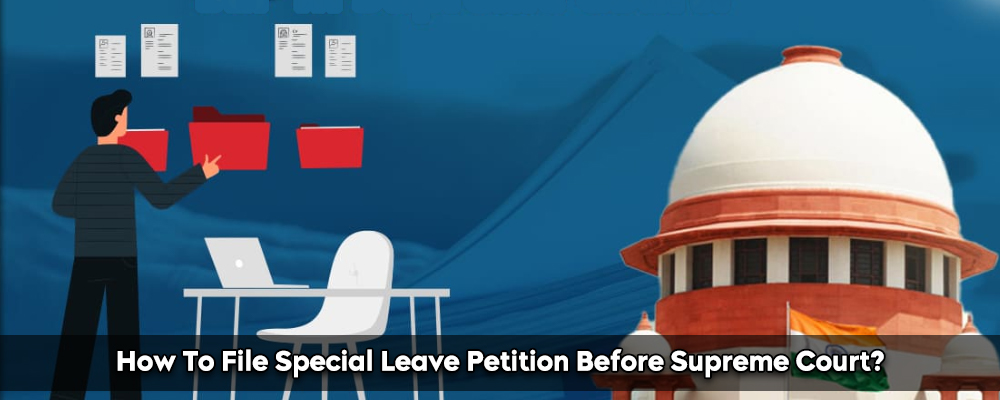The Special Leave Petition (SLP) is a crucial component of India’s judiciary. The Supreme Court has been given residual authority, which it may only use in situations when there is a serious legal dispute or where egregious injustice has occurred.
This gives the harmed party special permission to appeal a court or tribunal decision anywhere in India’s jurisdiction to the Apex Court and have their case heard. This is a petition for an appeal, not an appeal. Following the filing of the special leave petition before the supreme court, the case may be heard by the Supreme Court, which may then decide to grant “leave” and turn the petition into an appeal. Subsequently, SLP will be treated as an appeal, and the court will have the opportunity to hear the case and render a decision.
Special Leave Petition Before Supreme Court: Who Can File?
- Any person who feels wronged may file a special leave petition before supreme court under Article 136 of the Indian Constitution in opposition to the ruling or order that denies them a certificate. Only situations involving a significant legal issue are eligible for special leave; cases without regard to the case’s merits or facts are not.
- The sole legal issue that can be debated in an SLP is whether or not the law was correctly implemented and interpreted in line with established legal principles, etc.
Need A Legal Advice
The internet is not a lawyer and neither are you. Talk to a real lawyer about your legal issue

Special Leave Petition Before Supreme Court: When One Can File?
- Only in cases where there is a significant legal issue or where a person has been subjected to egregious injustice may file an SLP for appeal under Article 136 of the Indian Constitution.
- The appeal must have the quality of being decided by a court in order to contest the decree, order, or judgment. An executive or purely administrative order cannot be the decision that is being contested.
- The body that issued the decision that is being appealed to the Supreme Court of India must be considered an Indian court or tribunal.
Article 136 of the Indian Constitution mentions this as an exception to the special leave petition. It is not permitted for someone to appeal a decision or ruling made by a tribunal or court that resolves conflicts involving the armed forces with a special leave petition.
Special Leave Petition Before Supreme Court: Procedure to File
Drafting the Special Leave Petition
On behalf of the petitioner (you), a lawyer should write the SLP. The case’s facts, the pertinent legal questions, and the petitioner’s justification for requesting permission to appeal to the Supreme Court should all be stated out in detail.
Submission of the Special Leave Petition
The SLP must be submitted to the Supreme Court of India Registry. The petition and a copy of the lower court’s order or judgment that is being contested should be filed in triplicate.
Fee Payment
In order to file an SLP, the petitioner (you) must pay the applicable fees. Depending on the type of action and the relief requested, different fees apply.
Verification of the Special Leave Petition
A signed affidavit shall be submitted, and the petitioner or a designated representative must verify the SLP.
Serving Notice
Upon filing the SLP, the petitioner must provide a copy of the SLP and notice to the respondent (other party).
Presentation of the Special Leave Petition
Following filing, the SLP is presented before a Supreme Court bench. On the day of the hearing, the petitioner must appear in court and present their case.
One important tool used by the nation’s highest court to administer justice is the Special Leave Petition. However, due to its very nature, SLP is an extremely flexible and fluid provision. As a result, the SC receives a large number of leave requests, which tends to choke it, but a similar number are denied at the admissions stage as well, which helps to maintain some equilibrium.
One can talk to a lawyer from Lead India for any kind of legal support. In India, free legal advice online can be obtained at Lead India. Along with receiving free legal advice online, one can also ask questions to the experts online free through Lead India.





 Talk to a Lawyer
Talk to a Lawyer